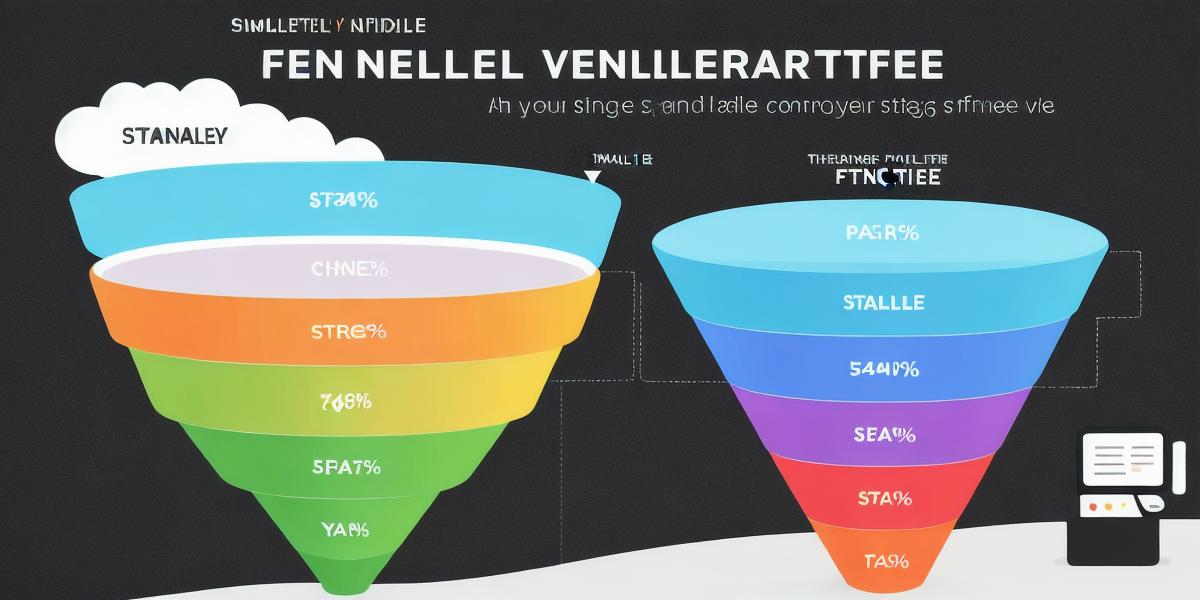Marketing is a crucial aspect of any business, and finding the right tools can make all the difference. As a small business owner, you may feel overwhelmed by the sheer number of marketing tools available. However, with this guide, you’ll be able to find the best marketing tool for your small business.
Table of Contents:
I. Introduction
A. Definition of Marketing Tools
B. Importance of Finding the Right Tool
C. Purpose of the Guide
II. Social Media Marketing
A. Overview of Social Media Marketing
B. Benefits of Social Media Marketing for Small Businesses
C. Popular Social Media Platforms for Small Businesses
D. How to Choose the Right Social Media Platform
E. Case Studies of Successful Social Media Marketing
F. Tips and Best Practices for Social Media Marketing
III. Email Marketing
A. Overview of Email Marketing
B. Benefits of Email Marketing for Small Businesses
C. Types of Email Marketing Campaigns
D. How to Build an Effective Email List
E. Best Practices for Email Marketing
F. Case Studies of Successful Email Marketing
IV. Content Marketing
A. Overview of Content Marketing
B. Benefits of Content Marketing for Small Businesses
C. Types of Content Marketing
D. How to Create a Content Marketing Strategy
E. Tips and Best Practices for Content Marketing
F. Case Studies of Successful Content Marketing
V. SEO (Search Engine Optimization)
A. Overview of SEO
B. Benefits of SEO for Small Businesses
C. On-Page SEO vs. Off-Page SEO
D. How to Improve Your Website’s SEO
E. Tips and Best Practices for SEO
F. Case Studies of Successful SEO
VI. Paid Advertising
A. Overview of Paid Advertising
B. Benefits of Paid Advertising for Small Businesses
C. Types of Paid Advertising
D. How to Choose the Right Paid Advertising Platform
E. Tips and Best Practices for Paid Advertising
F. Case Studies of Successful Paid Advertising
VII. Conclusion
A. Summary of Key Takeaways
B. Final Thoughts on Finding the Best Marketing Tool
C. Call to Action
Introduction:
Marketing tools are essential for any business, big or small. These tools help businesses reach their target audience, increase brand awareness, and drive sales. However, with so many marketing tools available, it can be challenging to find the right one for your small business. In this guide, we’ll explore different marketing tools and help you find the best one for your small business.
Importance of Finding the Right Tool:
The right marketing tool can make all the difference in your small business’s success. It can help you reach more customers, increase sales, and save time and money. However, finding the right tool can be challenging, especially if you’re new to marketing. That’s why it’s crucial to take the time to research and choose the best tool for your small business.

Purpose of the Guide:
The purpose of this guide is to provide small business owners with a comprehensive overview of different marketing tools and help them find the right one for their business. We’ll explore various aspects of each tool, including its benefits, how to use it, and best practices. By the end of this guide, you’ll have a better understanding of the different marketing tools available and be able to choose the right one for your small business.
Social Media Marketing:
Social media is an excellent way for small businesses to reach their target audience and build brand awareness. With social media platforms like Facebook, Instagram, Twitter, and LinkedIn, small businesses can connect with potential customers and engage with them in real-time.
Benefits of Social Media Marketing for Small Businesses:
Social media marketing has numerous benefits for small businesses, including:
1. Increased brand awareness
- Improved customer engagement
- Cost-effective advertising
4. Targeted advertising
- Improved website traffic
Popular Social Media Platforms for Small Businesses:
The most popular social media platforms for small businesses include Facebook, Instagram, Twitter, and LinkedIn. Each platform has its unique strengths and weaknesses, and the right platform for your small business will depend on your target audience and marketing goals.
How to Choose the Right Social Media Platform:
When choosing a social media platform for your small business, consider the following factors:
1. Target audience
2. Goals
3. Budget
4. Type of content
5. Analytics and reporting
Case Studies of Successful
Social Media Marketing:
Many small businesses have successfully used social media marketing to grow their brand and increase sales. For example, Glossier, a beauty brand, uses Instagram to showcase their products and connect with customers. They have over 6 million followers on the platform and have generated over $1 billion in revenue.
Tips and Best Practices for
Social Media Marketing:
Here are some tips and best practices for social media marketing:
1. Create a content calendar
2. Post consistently
3. Use high-quality images and videos
4. Engage with your audience
5. Monitor analytics and adjust your strategy accordingly
6. Run contests and giveaways
7. Collaborate with influencers
Email Marketing:
Email marketing is an effective way for small businesses to communicate with their customers and keep them engaged. With email marketing, small businesses can send personalized messages to their subscribers, promote products and services, and drive sales.
Benefits of Email Marketing for Small Businesses:
Email marketing has numerous benefits for small businesses, including:
- Cost-effective advertising
2. Targeted advertising
- High ROI
- Improved customer engagement
5. Increased brand awareness
Types of Email Marketing Campaigns:
There are several types of email marketing campaigns that small businesses can use, including:
1. Newsletters
2. Promotions and discounts
3. Product updates
4. Abandoned cart emails
5. Customer loyalty programs

How to Build an Effective Email List:
Building an effective email list is crucial for successful email marketing. Here are some tips for building a strong email list:
1. Offer something valuable in exchange for subscribers’ email addresses
2. Use lead magnets and opt-in forms
3. Optimize your website for email signups
4. Use pop-ups and banners on your website
5. Provide incentives for referrals
6. Keep your list clean and remove inactive subscribers
7. Segment your list based on interests and behavior
Best Practices for
Email Marketing:
Here are some best practices for email marketing:
1. Personalize your emails
2. Use a clear and concise subject line
3. Keep your emails short and to the point
4. Use visuals and images
5. Test different email templates and designs
6. Monitor open rates and click-through rates
7. Optimize for mobile devices
8. Avoid spamming and use a reputable email service provider
Case Studies of Successful
Email Marketing:
Many small businesses have successfully used email marketing to grow their customer base and increase sales. For example, Dollar Shave Club, an online subscription-based razor company, uses email marketing to promote new products and offer discounts to their subscribers. They have over 3 million subscribers on their email list and have generated over $1 billion in revenue.
Tips and Best Practices for
Email Marketing:
Here are some tips and best practices for email marketing:
1. Create a content calendar
2. Post consistently
3. Use high-quality images and videos
4. Engage with your audience
5. Monitor analytics and adjust your strategy accordingly
6. Run contests and giveaways
7. Collaborate with influencers
Content Marketing:
Content marketing is an excellent way for small businesses to establish themselves as experts in their industry and attract potential customers. With content marketing, small businesses can create valuable and informative content that provides value to their audience and positions them as thought leaders in their field.
Benefits of Content Marketing for Small Businesses:
Content marketing has numerous benefits for small businesses, including:
- Improved search engine rankings
2. Increased brand awareness
- Improved customer engagement
- Cost-effective advertising
5. Targeted advertising
- Improved website traffic
- Improved lead generation and conversion rates
Types of
Content Marketing:
There are several types of content marketing that small businesses can use, including:
1. Blog posts
2. Infographics
3. Videos
- Social media posts
5. E-books
6. Webinars
7. Podcasts
How to Create a Content Marketing Strategy:
Creating a content marketing strategy is crucial for successful content marketing. Here are some tips for creating a content marketing strategy:
1. Define your target audience
2. Identify your goals and objectives
3. Determine the type of content that will resonate with your audience
4. Create a content calendar
5. Optimize your content for search engines
6. Promote your content on social media and other channels
7. Measure and analyze your results
Best Practices for
Content Marketing:
Here are some best practices for content marketing:
1. Focus on quality over quantity
2. Use a mix of formats (blog posts, videos, infographics, etc.)
3. Optimize your content for search engines
4. Promote your content on social media and other channels
5. Engage with your audience and encourage feedback
6. Monitor analytics and adjust your strategy accordingly
7. Keep up with industry trends and best practices
Case Studies of Successful
Content Marketing:
Many small businesses have successfully used content marketing to grow their brand and increase sales. For example, HubSpot, an inbound marketing and sales software company, uses blog posts, infographics, and other types of content to educate potential customers and establish themselves as thought leaders in the industry. They have over 1 million visitors to their website each month and have generated over $500 million in revenue.
Tips and Best Practices for
Content Marketing:
Here are some tips and best practices for content marketing:
1. Create a content calendar
2. Post consistently
3. Use high-quality images and videos
4. Engage with your audience
5. Monitor analytics and adjust your strategy accordingly
6. Run contests and giveaways
7. Collaborate with influencers
Pay-Per-Click Advertising:
Pay-per-click (PPC) advertising is an effective way for small businesses to reach potential customers who are actively searching for products or services like theirs. With PPC advertising, small businesses can target specific keywords and demographics and only pay when a user clicks on their ad.
Benefits of PPC Advertising for Small Businesses:
PPC advertising has numerous benefits for small businesses, including:
- Cost-effective advertising
2. Targeted advertising
- Measurable results
- Improved website traffic
5. Increased sales and conversions
How to Create a PPC Advertising Campaign:
Creating a PPC advertising campaign is crucial for successful PPC advertising. Here are some tips for creating a PPC advertising campaign:
1. Define your target audience
2. Choose relevant keywords
3. Set a budget and bid strategy
4. Create compelling ad copy and visuals
5. Test and optimize your campaigns
6. Monitor analytics and adjust your strategy accordingly
Best Practices for PPC Advertising:
Here are some best practices for PPC advertising:
1. Use relevant keywords
2. Write compelling ad copy that includes a clear call-to-action
3. Use high-quality images and videos
4. Test different ad formats and placements
5. Optimize for mobile devices
6. Monitor analytics and adjust your strategy accordingly
7. Keep up with industry trends and best practices
Case Studies of Successful PPC Advertising:
Many small businesses have successfully used PPC advertising to grow their brand and increase sales. For example, Warby Parker, an online eyewear retailer, uses PPC advertising to target users who are actively searching for eyewear products like theirs. They have over $1 billion in annual revenue and attribute much of their success to their PPC advertising campaigns.
Tips and
Best Practices for PPC Advertising:
Here are some tips and best practices for PPC advertising:
1. Create a content calendar
2. Post consistently
3. Use high-quality images and videos
4. Engage with your audience
5. Monitor analytics and adjust your strategy accordingly
6. Run contests and giveaways
7. Collaborate with influencers
In conclusion, digital marketing is an essential component of any small business’s marketing strategy. It can help businesses reach new customers, increase brand awareness, and drive sales. By understanding the various types of digital marketing and their benefits, small businesses can create effective marketing strategies that help them achieve their goals.




